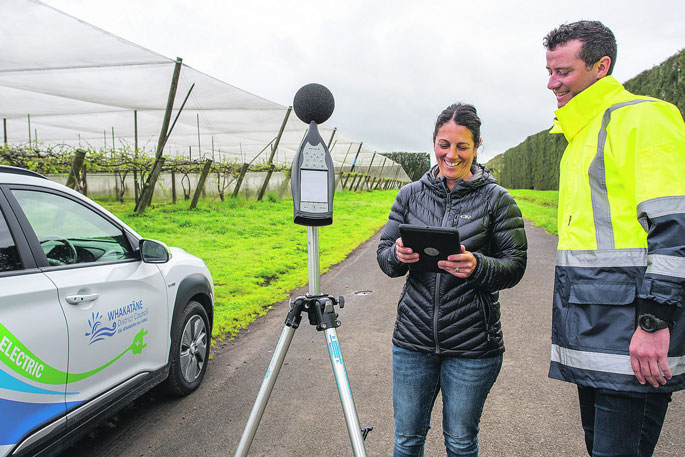While some submitters have asked for a total ban of audible bird scaring devices in the Whakatāne district, Horticulture New Zealand says any further restriction of their use could negatively impact the industry.
A second round of submissions on Whakatāne District Council's changes to its Plan Change 6 – Audible Bird Scaring Devices is now open.
In response to complaints from people living in rural areas of the district, where the number of kiwifruit orchards has been rapidly increasing in recent years, the council has proposed to change its rules for the use of the cannon-like bird scarers.
The plan change looks to reduce the allowable decibel levels of the devices, the hours of the day, times of year and the frequency with which they are allowed to be used and introduces rules around distance from the boundaries of residential properties the decibel levels should be measured from.
A first round of consultation on the plan change was held in August and September last year and nine submissions were made. None of these asked to speak at a hearing.
The submissions both opposed to and in support of the changes have been made available on the council's website and as a printed copy from the council.
As part of the Resource Management Act process, a second round of consultation is now taking place to give interested parties a chance to respond with their support or opposition to the views previously submitted.
Two of the submissions, including one on behalf of Horticulture New Zealand and the New Zealand Kiwifruit Growers Association, and another from a kiwifruit grower, were against the increased restrictions on the use of scarers.
The submission written by Horticulture New Zealand senior policy adviser Sarah Cameron opposed the plan change in its entirety and sought for the council to withdraw it.
'(The plan change is) inappropriately balanced towards residents and will have a negative impact on horticulture production in Whakatane,” the submission says.
The submission also questioned the method of sound measurement used in the investigation preceeding the plan and whether the disturbance caused to residents by the devices was non compliance by orchardists with the current regulations.
'There appears to be a degree of non-compliance with the operative district plan which may well be exacerbating the effects of ABSD in the district.
Orchardist Robert Humpheries made a submission in support of the Horticulture New Zealand saying the plan change would 'inhibit orchardists' rights to protect crops in fair and effective manner”.
Poroporo residents Sandy and Bruce Pryde, who introduced a petition to council about the bird scarers in 2021, made a submission on behalf of Poroporo residents who signed a petition opposed to the plan change in favour of a total ban on the devices.
'ABSD causes extreme distress to humans and animals when they are totally unnecessary. There are many alternatives that can be used.”
The submisson also reminded the council of the original complaint in the petition of residents being subjected to loud booms seven days a week from 7am until 7pm.
'Approx 144 Boom... Boom... BOOM's per day, thats 1008 times per week.”
Another Poroporo resident, Keryn Mullins, submitted that devices were too loud and continuous throughout the day 'and sound like big shot guns going off all the time”.
'These should not be allowed and advantage of them is questionable as birds just fly back a few minutes later.”
Te Rūnanga o Ngāti Awa submitted in support of the plan change with the stipulation that marae, papakāinga and marae urupa in the district also be recognised and provided for in the plan, alongside other residences.
Submissions close on February 10 for the current round of consultation and submittors will have an opportunity to speak at a hearing before the council makes its decision.
-Local Democracy Reporting is Public Interest Journalism funded through NZ On Air.




0 comments
Leave a Comment
You must be logged in to make a comment.